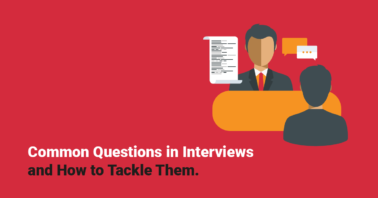It is easy for a single job post to attract as many as 1000 applications, thanks to the dwindling economy and competitive job market. Most employers are finding it harder to shortlist candidates from the long list of applications. Technically, it takes approximately 7 seconds for a recruiter to sweep through your CV for the information they need. Question is, are you making your first seven seconds count?
When shortlisting, recruiters or employers sift through CV for major sections, which if you lack, you drastically reduce your chances of ever getting into the list of shortlisted candidates. Here are some ways to make sure you stand out for your next job.
Table of Contents
1. Achievements
In this ever growing job market, the demand for jobs is becoming increasingly high with no provision of adequate opportunities. To thrive in such an environment you need to demonstrate your uniqueness. Marketers call this USP (unique selling point), to do this, don’t just indicate your duties in the CV but rather, go a step further and list some of your achievements. For instance, aim to make your achievements quantifiable enough for the recruiter to see that you can deliver if given an opportunity. If you are an accountant, explain how you reduced the company costs by 17% through innovative cost reduction strategies and use of accounting systems like Navision or SAP. The point is to demonstrate that you can deliver and employers want someone who can do just that.

2. Relevant work experience
Relevant experience touches on industry, location, experience level, specific skills e.g. knowledge of an ERP etc. Unless an employer is willing to train or is open to other industries and sectors, relevant work experience is crucial. If, for example, an employer is hiring for an NGO sector and makes it clear that nonprofit experience is crucial, then it is not advisable for you to apply if you don’t come from such a background. The keywords are ‘relevant work experience’. Apply with the right qualification set, not just because you need a job and one has been advertised. You are part of hundreds of applicants, strive to be part of the shortlisted candidates too.

3. Employment Status
Are you currently engaged or not working? This could work for /or against you. Some positions require immediate placement while others are willing to wait for candidates to serve notice. It is, therefore, prudent that you pay close attention to the details of the advert to avoid missing such important information. If you’ve been out of a job for a long time, this raises serious questions as to why you left your previous job and the reason why you’ve not been absorbed elsewhere yet. Employers are generally suspicious of candidates who are not working. Some employers will actually be hesitant to shortlist candidates with no jobs. If you’ve been searching for a job for long with no success, maybe it’s time to consider volunteering or interning to close this gap.
4. Referees
Who wants to employ someone who is not credible enough for them? Do you have relevant referees, who you could jot down in minutes if asked in an interview? If you have worked for 3 employers and none is listed as your referees section, you raise doubts on how you left previous employments. Always indicate some of your previous employers or colleagues as referees. This shows that you have nothing to hide. Unless you are fresh from college, remove your former lecturer and anyone who is not work-related from your list of referees.
5. Gaps
Are there gaps in your CV? If they are too many, you might be labeled a job hopper. To avoid this, always explain in your CV why you left each employment and what you were doing in that period. The danger with gaps is if they are too many and especially if preceded or followed by short stints in employment. Such a CV communicates that you don’t stay long in employment and employers don’t want instability since recruitment costs a lot in terms of time and money. If you were hired in August this year and you are already applying for other jobs know that few or no employer(s) will take you seriously. While it’s expected that candidates will seek greener pastures, employers look down upon those who look unsettled by changing jobs within a short period. In such a case, you could embark on networking so as to get a chance to explain yourself even before you share your CV with a potential employer.

All said and done, how appealing is your CV to the eye? From how you’ve formatted your CV, spelling, presentation etc. Just like any other formal document, you will be judged on presentation. It even becomes more critical as you advance in your career. Employers will easily shortlist candidates who can package their CVs in such a way that they will get as much information as possible at a glance, and without any struggle. Make sure the CV you have sells you as much as it should.





